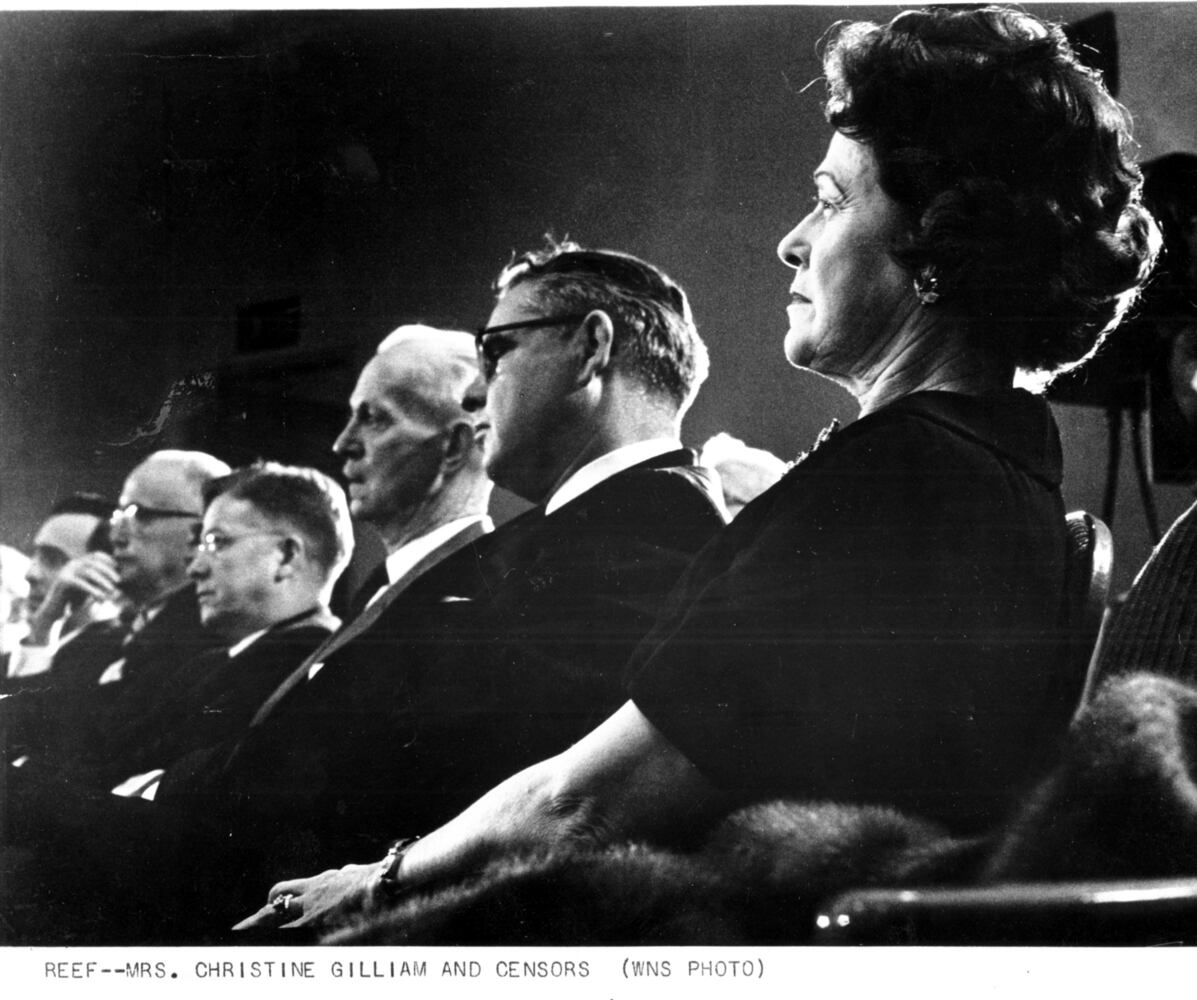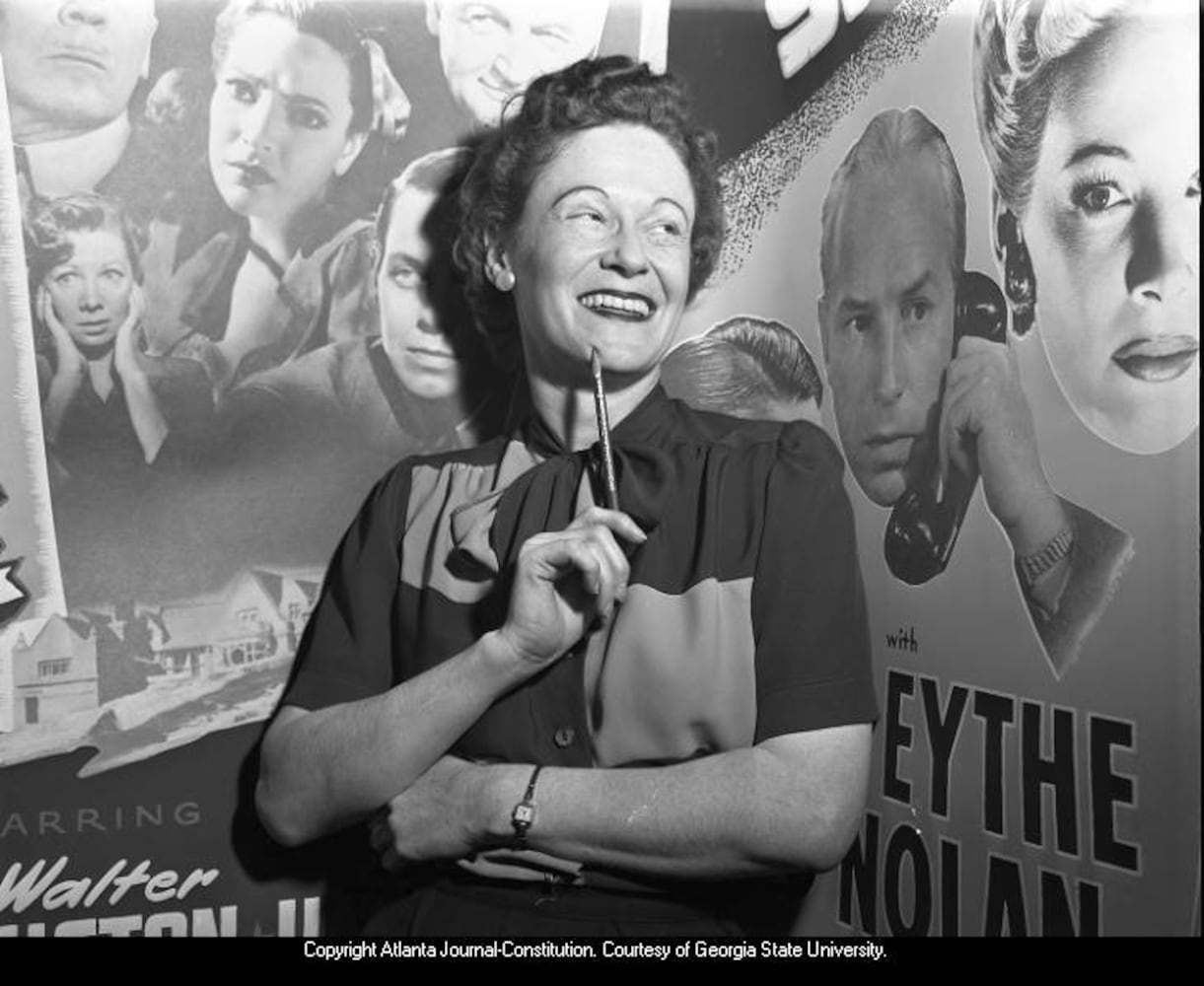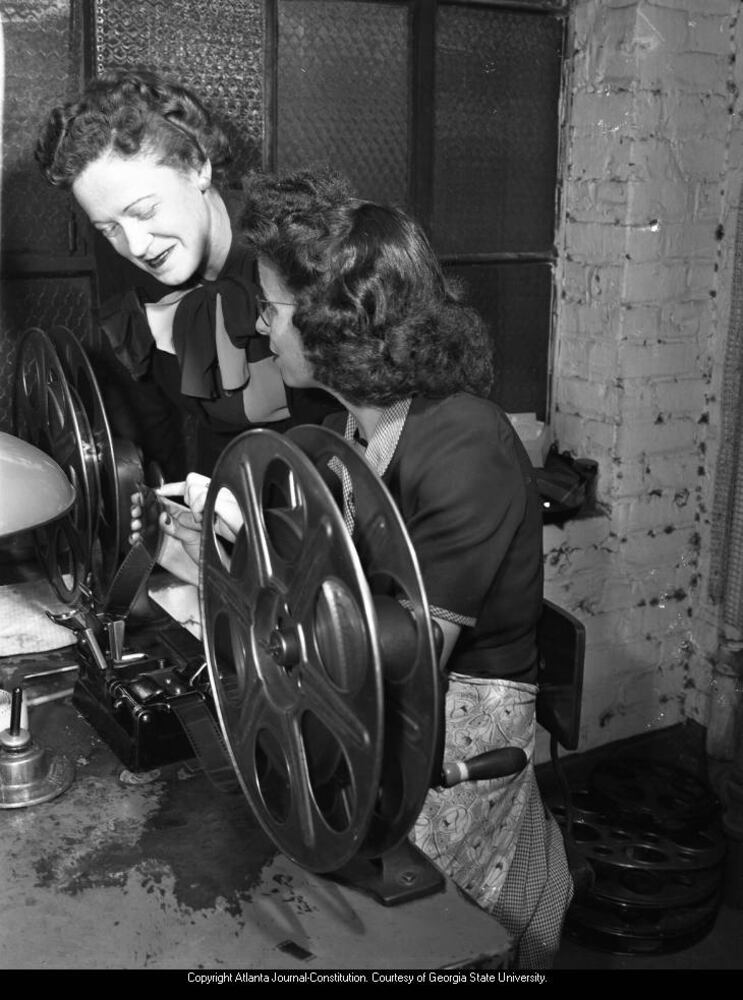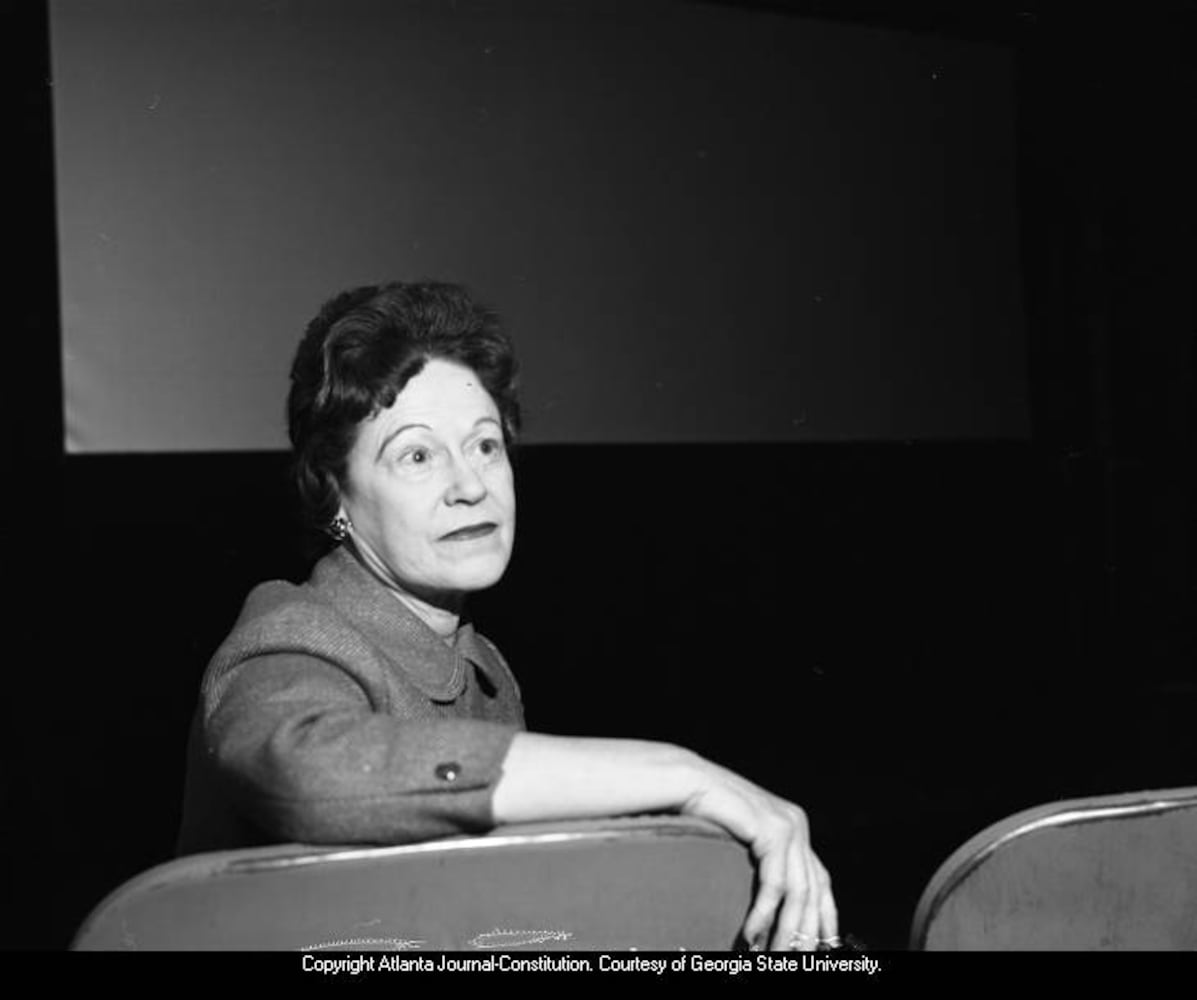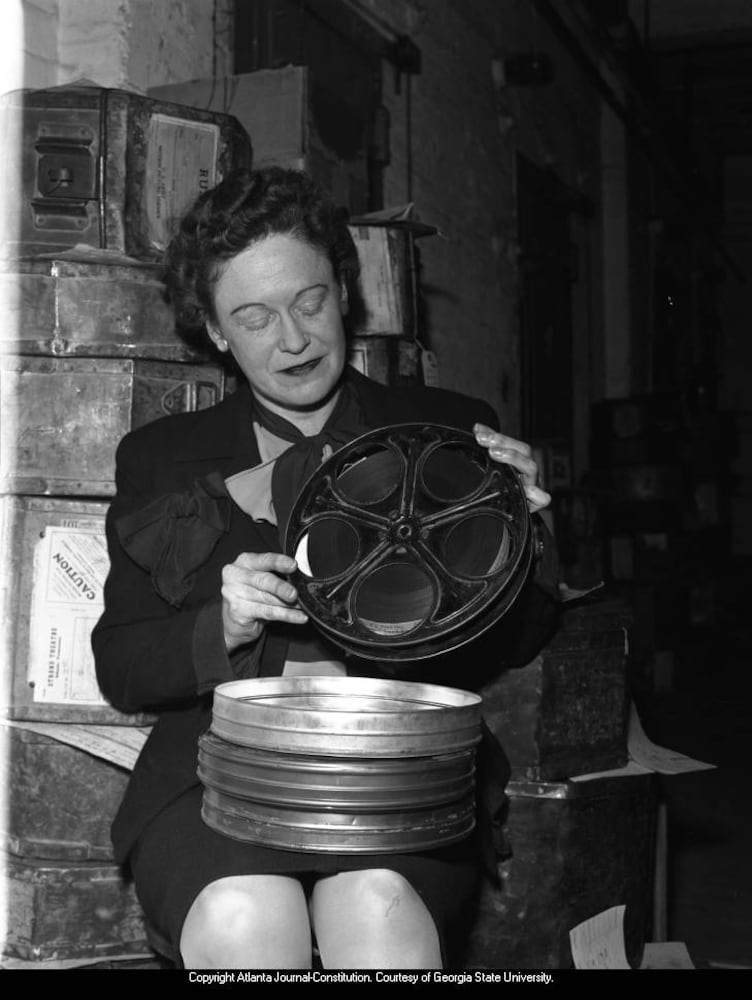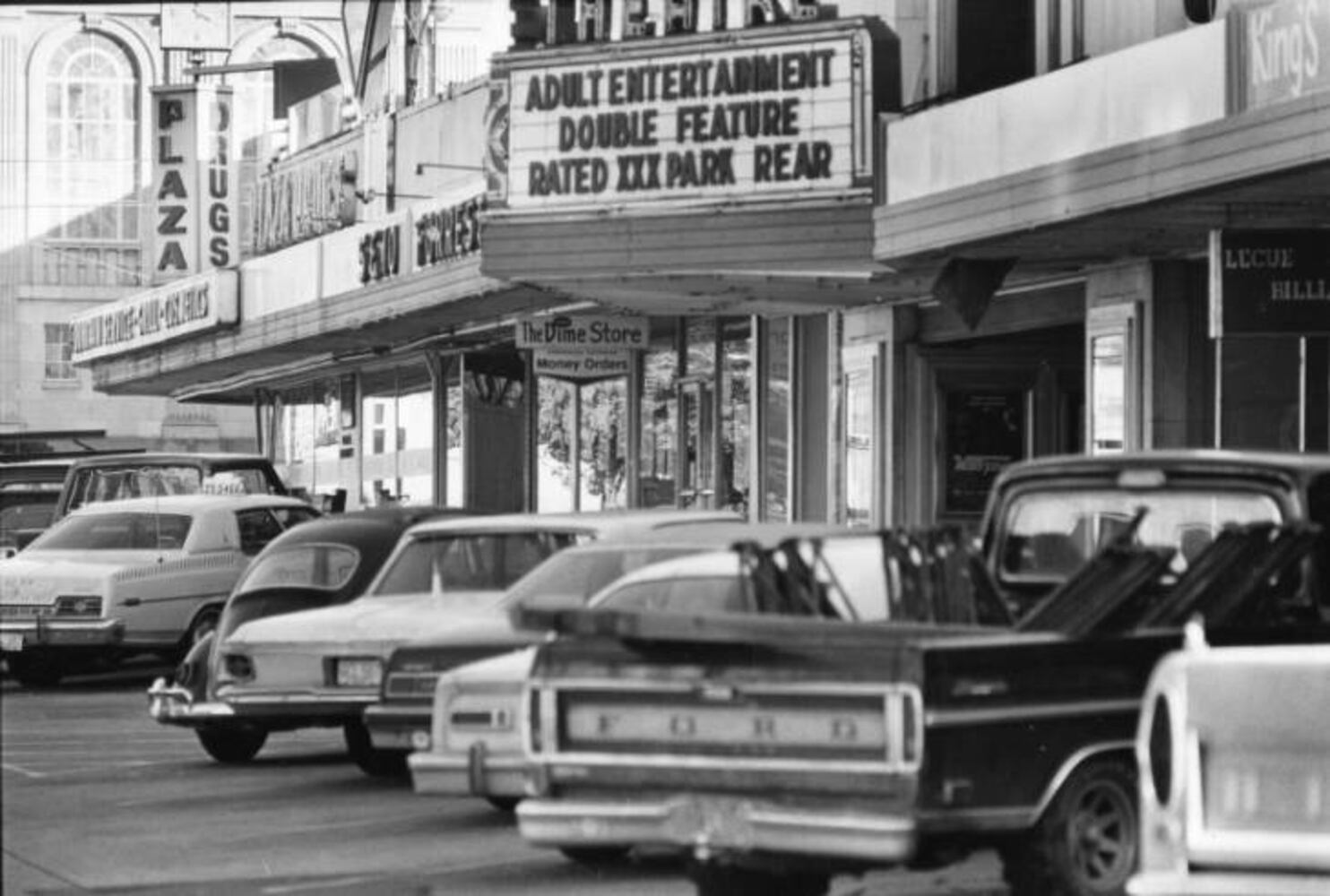The banning of former president Trump from Twitter and Facebook, along with the removal of Parler from online app stores, has intensified debate over what constitutes censorship and how private companies regulate public discourse.
Netflix fans of today may be shocked to learn movies were routinely censored and banned throughout the United States during much of the 20th century. And Atlanta, like many other big cities of the time, employed a film censor starting in 1915.
Credit: AJC Photo Archives
Credit: AJC Photo Archives
>> MORE DEJA NEWS: Check out what we’ve covered before (and again)
“Atlanta’s censorship ordinance dates back to 1915 when John W. Peacock became the first of three city censors,” reporter Eddie Sears wrote in the Sunday, Jan. 24, 1971 Journal and Constitution. When Christine Smith Gilliam, Atlanta’s film censor since 1945, banned the film “Never on Sunday in late 1960, she set in motion events that eventually cost her the position she’d hold for almost 20 years.
“Her action touched off a legal battle that ... would introduce an era of unparalleled growth in the ‘adult’ movie and book business,” Sears reported, noting that “during this same period when the courts were questioning the powers of the city censor, the U.S. Supreme Court, in a series of opinions on obscenity and censorship, was opening the gates on the smut business nationwide. Based on these local and national rulings, adult bookstores and movie houses showing sex exploitation films opened in Atlanta and rapidly multiplied.”
“In May 1961,” Sears wrote, “Fulton Superior Court Judge Luther Alverson ruled Atlanta’s censorship ordinance unconstitutional and restrained the city from banning ‘Never on Sunday.’ The judge’s 24-page ruling found the movie not obscene and pointed out that it had been shown on 2,000 screens in 175 cities.”
Alverson’s ruling was later overturned on a technicality. In April 1962, however, the Georgia Supreme Court found the Atlanta ordinance in violation of the state constitution. Two films Gilliam banned in 1961, “Wasted Lives” and “The Birth of Twins,” became the basis for the ruling.
“The court said that the city did not have the right to ban the films in the first place,” Sears noted in his report.
Gilliam resigned her $7,202-a-year position in July 1964.
During her tenure, Gilliam saw 4,490 films, ordered cuts in 154 and banned 107. Among the movies Gilliam banned were Academy Award nominees “The Blackboard Jungle” and “The Man with the Golden Arm,” and Oscar winners “Room at the Top” and “Imitation of Life.”
A Feb. 19, 1947, Constitution piece detailed just how much power Gilliam, then still Christine Smith, could potentially wield. The article, headlined “City Asks Free Swing For Censor Smith’s Ax,” stated that a City Council resolution requested the State Legislature “to amend the Atlanta charter so that the Mayor and Council and the Carnegie Library Board, under which Miss Smith functions, can delegate to her any censorship powers they may have, collectively or individually.”
The resolution was sponsored by Alderman Ed A. Gilliam, whom Christine Smith married in October 1954.
READ THE ORIGINAL STORY HERE
ABOUT DEJA NEWS
In this series, we scour the AJC archives for the most interesting news from days gone by, show you the original front page and update the story.
If you have a story you’d like researched and featured in AJC Deja News, send an email with as much information as you know. Email: malbright@ajc.com. Use the subject line “AJC Deja News.”
About the Author
Keep Reading
The Latest
Featured
